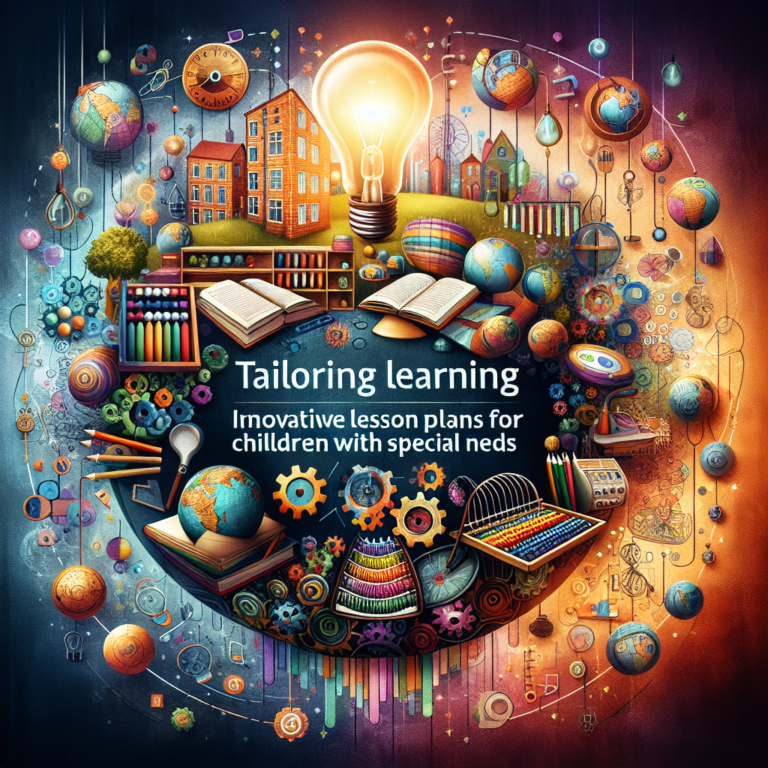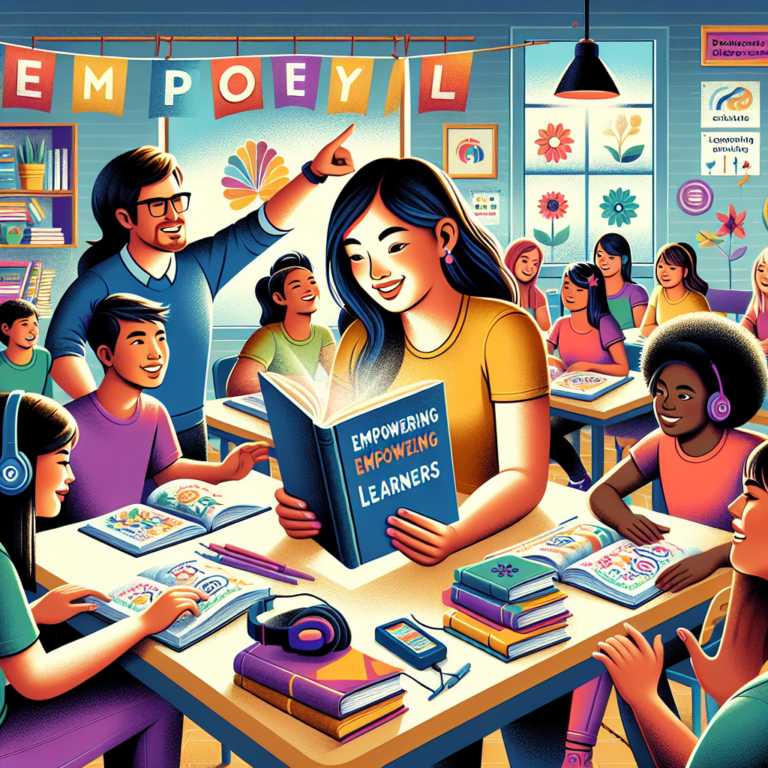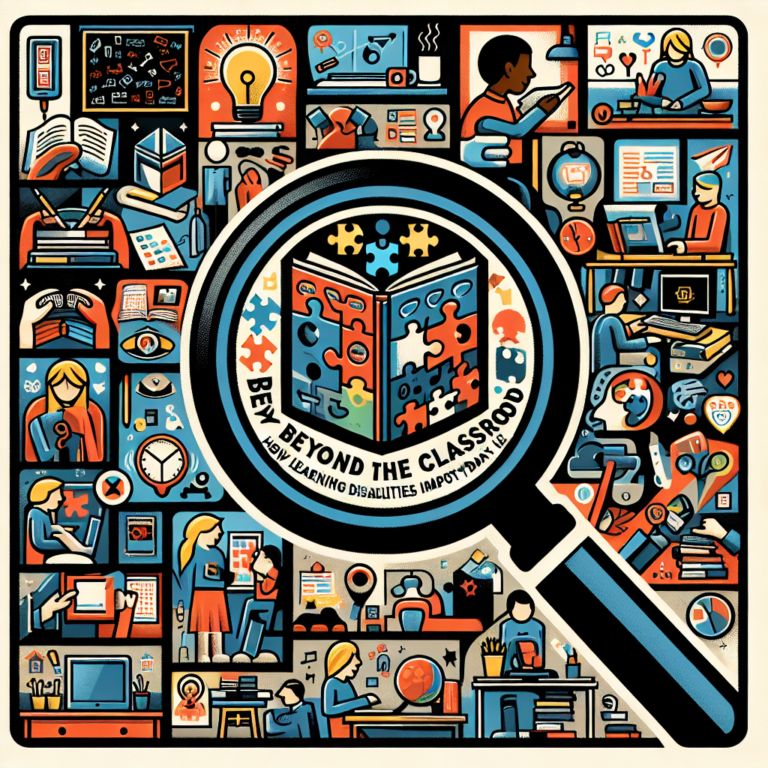
Inclusive Classrooms Begin Here: The Essential Importance of Specialized Teacher Training in Learning Disabilities
Introduction
Imagine a classroom where every child, irrespective of their learning challenges, feels accepted, engaged, and empowered. Such inclusive classrooms can be the heartbeat of progressive education, but achieving this ideal mandates significant groundwork—especially in the realm of teacher training. Inclusive Classrooms Begin Here: The Importance of Specialized Teacher Training in Learning Disabilities is a calling for educators, administrators, and policymakers to invest in a future where every learner can thrive. By focusing on specialized teacher training, we not only enrich the educational experience for students with learning disabilities but also cultivate an environment that embraces diversity and promotes success for all.
The Landscape of Inclusive Classrooms
The Need for Inclusivity
Statistics reveal that approximately 1 in 5 students in the United States has some form of learning disability. The impact of these challenges can range from mild to severe, affecting everything from reading and writing skills to social interactions and emotional resilience. Some common disabilities include dyslexia, Attention Deficit Hyperactivity Disorder (ADHD), and autism spectrum disorder. Given the increasing diversity of student needs, educators must be equipped with the knowledge and skills necessary to foster inclusive classrooms.
Defining Specialized Teacher Training
Specialized teacher training involves preparing educators with both theoretical knowledge and practical strategies specifically tailored to support students with learning disabilities. It transcends traditional teacher education by emphasizing evidence-based practices, individualized instruction, and an understanding of different learning profiles. Inclusive classrooms hinge upon this specialized training, allowing teachers to intuitively cater to varied student needs, ultimately leading to improved educational outcomes.
The Role of Specialized Teacher Training
Understanding Learning Disabilities
To ignite transformative change, educators must first comprehend the intricacies of learning disabilities. This understanding facilitates appropriate interventions and adaptations tailored to individual learners. Specialized training dives deep into various disabilities, ensuring teachers recognize the signs, symptoms, and effective strategies related to each condition.
For instance, a case study in a suburban school district revealed that teachers who underwent training in recognizing early signs of dyslexia were able to implement targeted reading interventions, resulting in significant improvements in students’ literacy levels.
Implementing Inclusive Strategies
Training programs introduce educators to differentiated instruction, a pedagogical approach that adjusts teaching methods to accommodate diverse learners. Educators trained in these methods are adept at employing techniques such as:
- Flexible Grouping: Working with students in varied group settings based on their skill levels and learning styles.
- Tiered Assignments: Crafting assignments at varying levels of difficulty to meet different proficiency levels.
- Multisensory Instruction: Engaging multiple senses to enhance learning experiences, especially beneficial for students with specific learning disabilities.
A practical application of these strategies was observed in an economically disadvantaged urban school. Educators newly trained in differentiated instruction saw tangible progress in student engagement and performance over the academic year, showcasing the real-world effectiveness of specialized training.
Building Collaborative School Cultures
An integral part of effective teacher training is fostering collaboration among staff, ensuring that all educators support each other in understanding and responding to learning disabilities. Collaborative planning sessions can facilitate exchanges of best practices and successful strategies.
Table 1: Benefits of Collaborative Approaches in Teaching
| Benefit | Description |
|---|---|
| Shared Resources | Access to a wider array of teaching materials. |
| Diverse Perspectives | Broadened understanding of various learning needs. |
| Enhanced Support | Increased confidence and morale among teachers. |
In a district that prioritized collaborative training, teachers reported feeling more confident in addressing the needs of students with disabilities, leading to a marked increase in student satisfaction and achievement.
Engaging Families and Communities
Families play a pivotal role in the educational journey of children with learning disabilities. Specialized teacher training programs can also incorporate strategies for effective communication with parents, creating partnerships that bolster student learning. Collaborative initiatives such as parent-teacher workshops or community support groups foster a network of support around students.
A noteworthy example occurred in a rural district where teachers, trained to value family input, organized regular workshops for parents. These efforts resulted in increased student motivation and a cohesive approach to addressing learning challenges.
The Importance of Continuous Professional Development
Inclusive classrooms cannot be achieved overnight. Continuous professional development (CPD) in specialized training is essential. Educators should have access to ongoing workshops, seminars, and resources to stay updated on the latest research and trends in teaching students with learning disabilities.
Case Studies: Real-World Relevance of Specialized Teacher Training
Case Study 1: Implementing Universal Design for Learning (UDL)
In a forward-thinking school, the staff embraced the Universal Design for Learning (UDL) approach—an educational framework that promotes flexible learning environments. Teachers received specialized training on UDL principles, allowing them to provide multiple means of engagement, representation, and action/expression. As a result, student participation surged, with significant reports of improved academic performance and self-efficacy among previously disengaged learners.
Analysis: This case underscores the viability of broad instructional frameworks that consider learner variability, which is only possible through specialized training.
Case Study 2: Response to Intervention (RTI)
A mid-sized school district implemented a tiered intervention program known as Response to Intervention (RTI), with extensive training for educators. The initiative emphasized early intervention strategies for struggling students, utilizing data-driven approaches to tailor support. Following the training, the district observed a 30% decrease in the referral rates for special education services, highlighting the power of informed, proactive teaching methods.
Analysis: This case illustrates the importance of teacher training in implementing effective, data-driven educational interventions that benefit diverse learners.
The Future of Inclusive Classrooms
Advocating for Systematic Change
For specialized teacher training to take root and thrive, systemic support is required. Schools and districts must prioritize inclusivity as a fundamental principle of education, integrating specialized training into their hiring and professional development processes. Educational leaders should advocate for policies that mandate training, ensuring that all educators—both new and experienced—are equipped to handle diverse learning needs.
Enhancing Accessibility to Training
Accessibility can often be a barrier to specialized teacher training. Educational institutions must provide varied formats—online courses, in-person workshops, and hybrid models—to accommodate diverse schedules and learning styles. Additionally, financial support or incentives should be made available to encourage participation in these vital programs.
Conclusion
Inclusive Classrooms Begin Here: The Importance of Specialized Teacher Training in Learning Disabilities is a powerful message that resonates at the core of educational reform. By prioritizing specialized training, we cultivate environments where every learner can succeed, regardless of their challenges. This approach not only enriches the lives of students but also empowers educators to unleash the full potential of their classrooms.
As we move forward, let’s advocate for systemic change, engage in continuous professional development, and embrace the values of empathy and inclusion—creating a learning landscape that celebrates the unique contributions of all students.
FAQs
1. What types of learning disabilities require specialized teacher training?
Common learning disabilities include dyslexia, ADHD, dyscalculia, and autism spectrum disorders. Specialized training helps educators understand these conditions and implement appropriate teaching strategies.
2. How can specialized training benefit students without learning disabilities?
Specialized training promotes diverse teaching methods that can enhance the educational experience for all students, accommodating different learning styles and preferences.
3. Are there certifications available for specialized teacher training?
Yes, many organizations offer certifications in special education and inclusive teaching methods, providing formal recognition of specialized competencies.
4. How can school administrators support teacher training initiatives?
Administrators can allocate resources for training, prioritize professional development in their strategic plans, and foster a culture of continuous learning among staff.
5. What role do parents play in the inclusive education of children with learning disabilities?
Parents provide valuable insights into their child’s needs and learning styles. Schools can benefit from involving parents in the educational process through communication and collaboration.
6. How can educators stay updated on the latest research concerning learning disabilities?
Educators can subscribe to relevant journals, attend conferences, participate in professional learning communities, and engage in online courses to remain informed about new strategies and findings.
By committing to our shared responsibility of fostering inclusive classrooms, we pave the way for a brighter, more equitable future in education. Let’s ensure Inclusive Classrooms Begin Here: The Importance of Specialized Teacher Training in Learning Disabilities is not just a mantra, but a reality for all learners.















